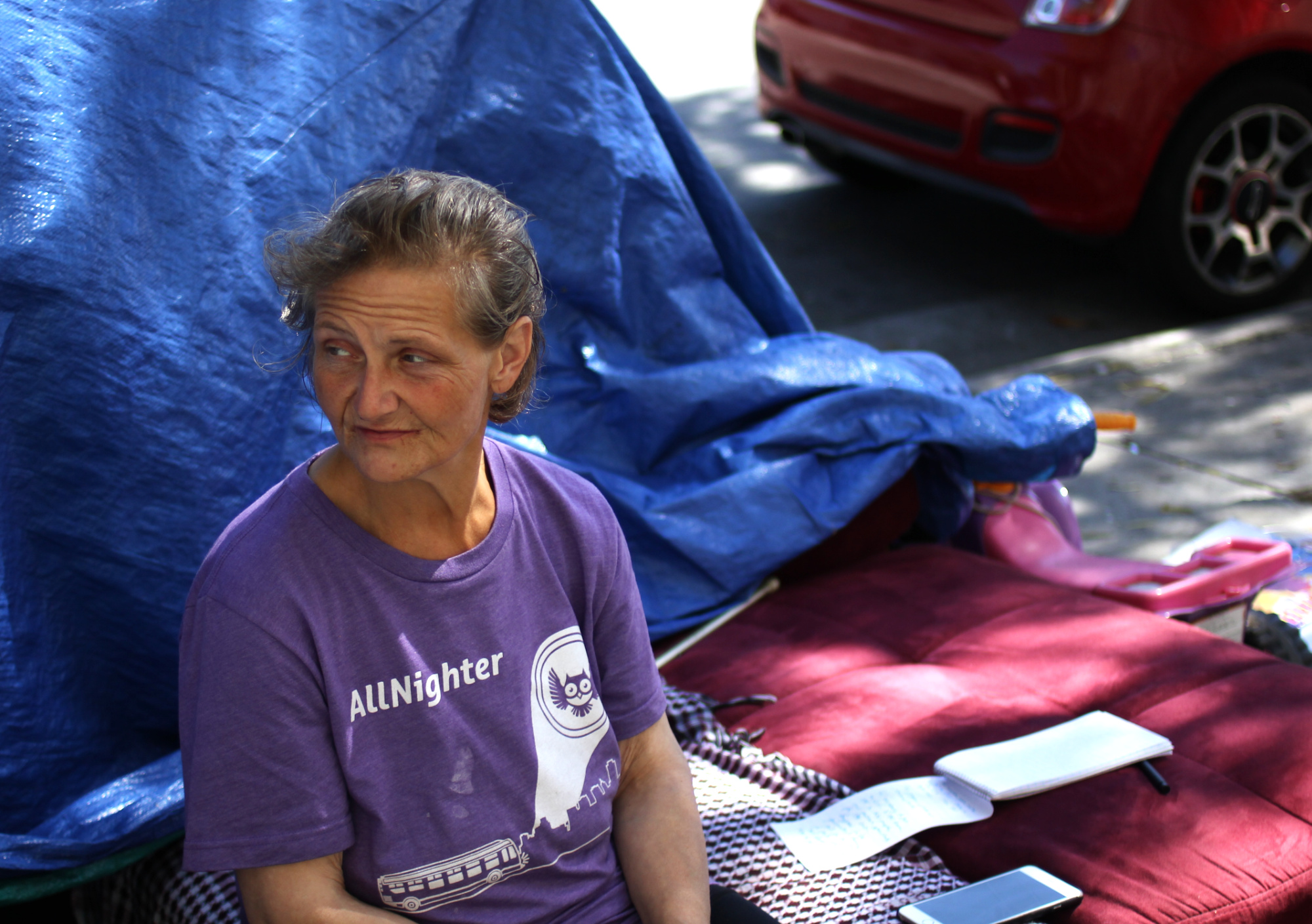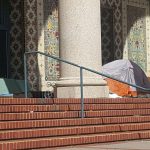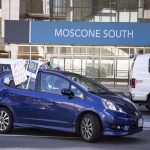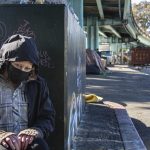The San Francisco Board of Supervisors is throwing its full support behind the idea of approved tent camps for homeless people to try to prevent the spread of COVID-19.
And some of the supervisors say they want the encampments to stick around even after the pandemic passes.
The board voted unanimously to pass a resolution, authored by District 8 Supervisor Rafael Mandelman, that calls on the city to offer homeless people bathrooms, handwashing stations, meals, sleeping space with at least six feet distance between tents, and possibly showers and internet access. Mayor London Breed and other city officials have recently signaled support for sanctioned encampments, also called safe camping sites.
Supervisor Dean Preston, who represents the Western Addition and Japantown and co-sponsored the resolution, said his support came in part because “the city has moved at an inexplicably slow pace to move homeless people into hotels.”
“I just want to be really clear that our first choice remains moving unhoused people into vacant apartment or hotel rooms where they don’t need to share facilities at all,” Preston added. “But hours matter, and we need to minimize all risk to the best of our ability.”
Preston said he had been in discussion with staff at the Department of Homelessness and Supportive Housing about potential sites for regulated encampments in his district.
Supervisor Sandra Fewer, who represents the Richmond and also co-sponsored the legislation, said she had her own locations in mind. “Seventy percent of Golden Gate Park is in my district, and I have identified specific areas which would be perfect for safe encampment sites.”
Fewer said she and Supervisor Gordon Mar, who represents the Sunset District, were working with the City Attorney’s Office on emergency legislation enabling sanctioned encampments on city-owned park land.
Mandelman has said Everett Middle School, in the Castro, which he represents, would make a suitable site for a camp. Its expansive playground and parking areas are available because it is closed for the remainder of the school year in response to the pandemic.
San Francisco is replete with other spaces that could theoretically host encampments because they’re empty, due to Breed’s order closing nonessential businesses and requiring residents to shelter in place.
It’s unclear what will happen to those sites when Breed’s order expires at the end of May.
Planning for a post-pandemic scenario
“That is truly a great question,” said Supervisor Aaron Peskin, who represents North Beach. “I’ve been thinking about this.” He said he would like to see the sanctioned encampments stick around, rather than disband. He argued that the city had a pressing commercial incentive:
“The goose that lays the golden egg in San Francisco, for many decades, is tourism,” he said, adding that San Francisco should make itself as attractive as possible to tourists.
“We can’t allow the homeless to return to the streets of Fisherman’s Wharf, if we actually want to bounce back,” he said. “So my high-level response is, yeah, we’re going to need to make that a permanent solution and that’s the only way that we’re going to rebound.”
Fewer said the temporary economic stoppage would cause ongoing challenges to San Francisco residents, and officials should craft a suite of lasting policy responses to help them cope. That should include sanctioned encampments, she said. “As we reset, as we build back better, stronger.”
Mandelman has also said that he would like to see the sanctioned encampments remain after the threat of COVID-19 has dissipated.
In a Saturday post on Medium.com, Breed said she and her staff “are working to open Safe Camping Sites to provide safe space for those who are living in tents on our streets.”
Jeff Kositsky, manager of the city’s multi-departmental response to street homelessness, has previously been skeptical about the policy approach. But this month he said he was amenable to it.
The sites would further tax City Hall resources, said Abigail Stewart-Kahn, director of the Department of Homelessness and Supportive Housing. To staff the sanctioned encampments, the city would draw from a limited pool of disaster service workers who are already in high demand to staff the hotel rooms where homeless people, among others, are self-isolating to prevent the spread of COVID-19, Stewart-Kahn said at an April 22 press conference.
Breed has 10 days to sign the resolution.










